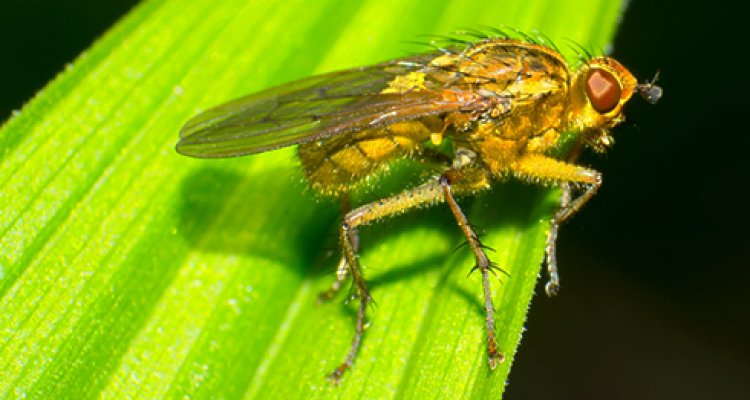
News
Yo-yo effect has little influence on the health of fruit flies
Regaining weight after weight loss is usually undesirable, but is this 'yo-yo effect' actually bad for your health? Scientists from Wageningen University recently investigated the influence of diet on the lifespan of fruit flies. In an article in today’s edition of the Journal of Evolutionary Biology, they show that fruit flies do not live as long on a yo-yo diet, but this life-shortening effect does not appear to be nearly as bad as that resulting from a continuous diet with too little food. They also show that fruit flies quickly adapt to a new diet and that they are less healthy if they do not get enough food as young adult flies.
Fluctuating weight has little effect on the longevity of fruit flies
The scientists compared fruit flies on a yo-yo diet with flies that were fed much food or little food continuously. The experiments showed that flies that ate much food lived 61 days on average. Flies that ate little food lived about 49 days. The 'yo-yo flies’ had an average lifespan of 60 days, which is very close to the flies that got a lot of food. Although the fruit flies that received a large amount of food lived longer, they laid fewer eggs than flies that had little to eat.
Yo-yo flies adapt quickly
The weight of flies on a yo-yo diet, with alternating amounts of much and little food, fluctuated between the weights of fruit flies that were given constant amounts of much or little food. When they were given much food after a period with little food, after three days the flies were heavier and they had laid fewer eggs than those given little food. If they were once again given little food, the weight of the flies and the number of eggs shifted in the direction of flies that were given little food continuously.
Impact quantity of food on young flies
The study also showed that the quantity of food eaten by young adult flies (immediately after they emerge from the pupae) has a permanent impact on their health. Flies that were given much food as young adults were heavier, remained heavier for longer, laid more eggs on less food and lived somewhat longer than flies that were given little food immediately after emerging from the pupae.
Humans and fruit flies
Generally speaking, humans live shorter lives if they eat more food or more energy-rich food. The response of fruit flies with respect to lifespan is therefore different than that of humans. However, fruit flies gain weight if they eat more, just like most humans. The study also showed that flies have poorer health if they are given insufficient food as young adults: they live shorter lives.
Fruit flies are easy to breed and have relatively short lifespans. As a result, they are a good model organism to conduct research into the amenability of reproduction, longevity and metabolism to various interventions. The study is part of the Ideal Ageing project.